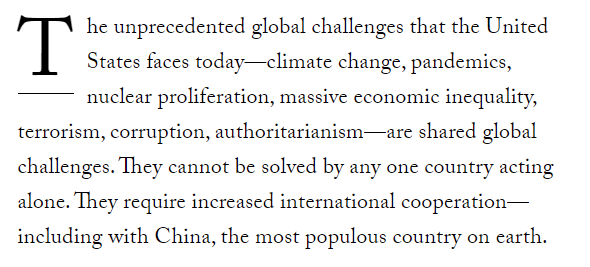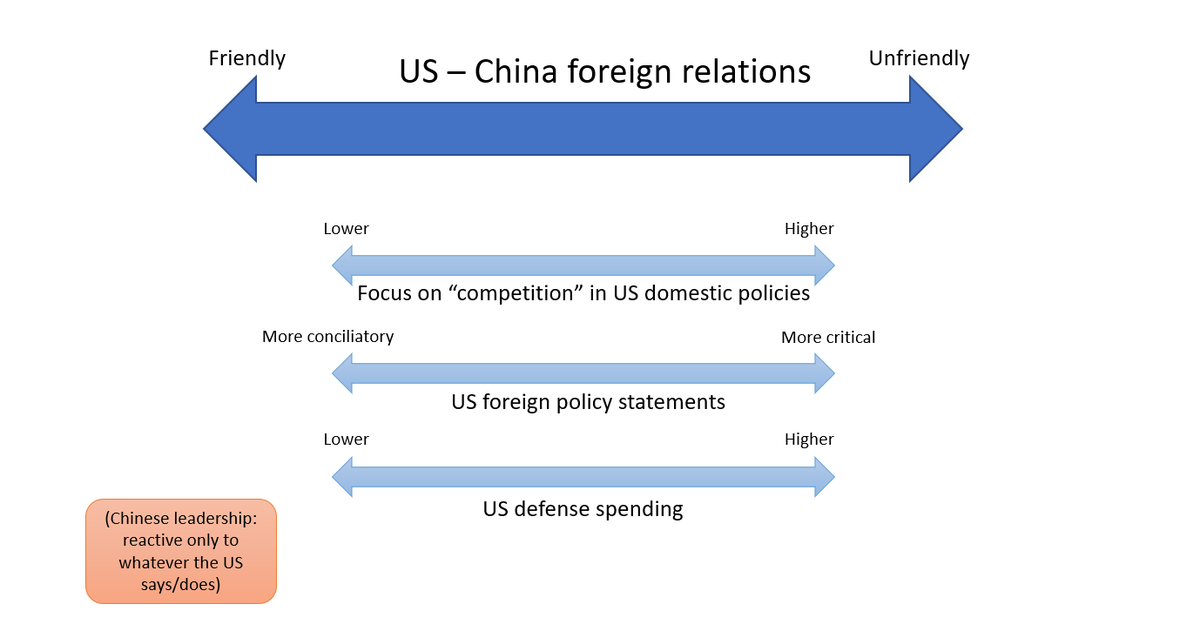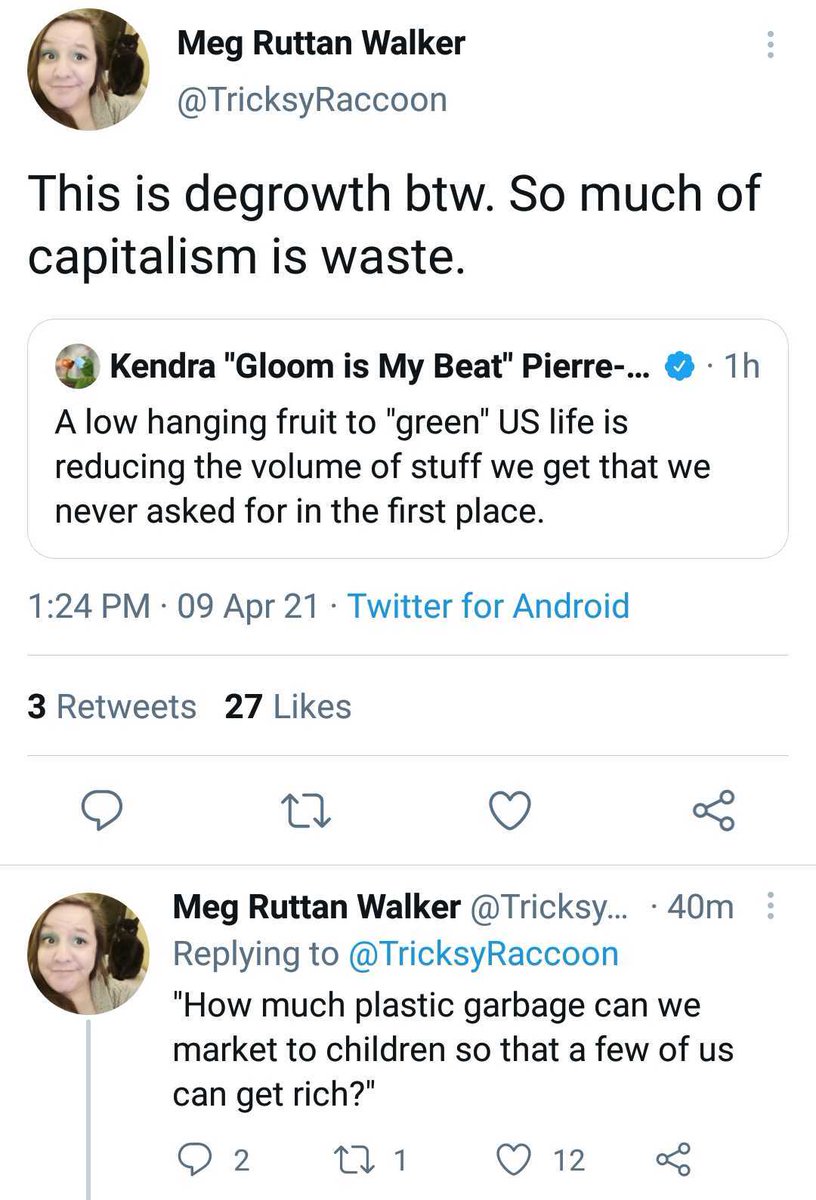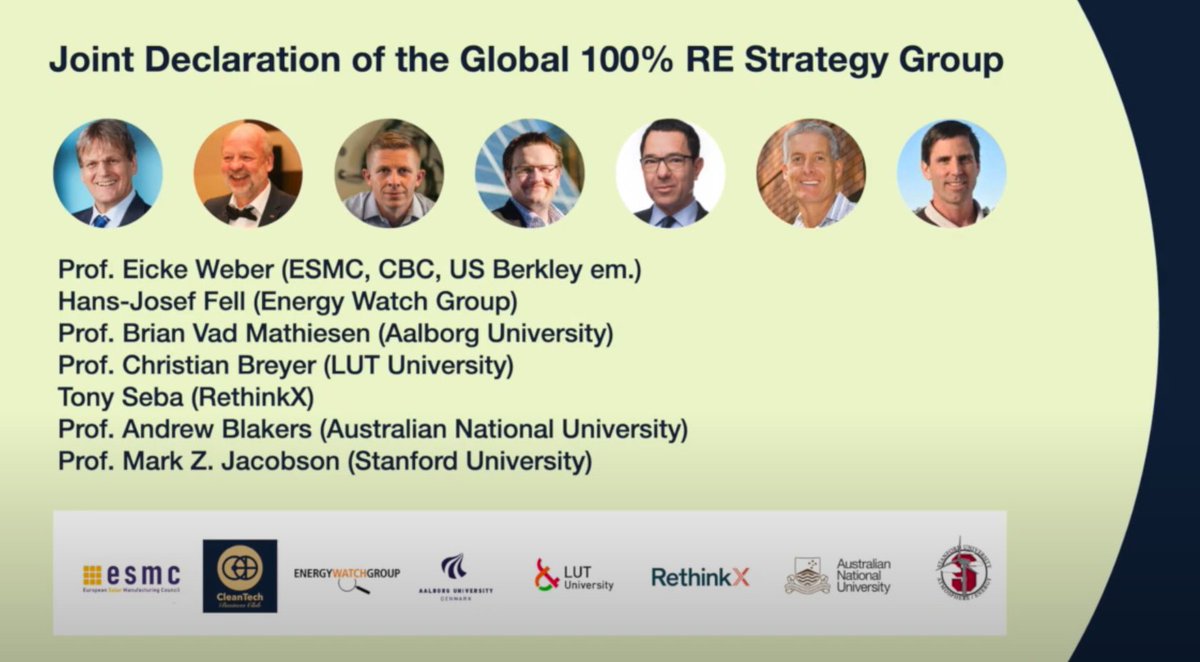
I continue to be disappointed to see progressive figures (this time @SenSanders) overreacting to current US-China tensions only to propose an incoherent, unrealistic alternative approach to US-China policy in an bid to foster conciliation.
Let me break this down. (THREAD)
Let me break this down. (THREAD)
https://twitter.com/ForeignAffairs/status/1405540763602087937
For the record, I voted Bernie in 2016 and Warren in 2020. I continue to support much of their former platforms, so while parts of the following thread are critical of progressives I assure you it's very much criticism tinged with regret. (1)
https://twitter.com/wang_seaver/status/1231335160974413824?s=20
These kinds of pieces continue to flagrantly ignore a very key set of factors in de-escalating US-China tensions.
Namely, what Chinese leaders' priorities are and how we might expect them to react to US policies, actions, and rhetoric. Kind of an important consideration! (2)
Namely, what Chinese leaders' priorities are and how we might expect them to react to US policies, actions, and rhetoric. Kind of an important consideration! (2)
It's evident from @SenSanders's 1st paragraph.
It'd be great if Beijing wanted to cooperate on the shared global challenge of "authoritarianism"! But isn't it obvious the CCP may not be very interested in said cooperation regardless of how friendly ties with Washington are? (3)
It'd be great if Beijing wanted to cooperate on the shared global challenge of "authoritarianism"! But isn't it obvious the CCP may not be very interested in said cooperation regardless of how friendly ties with Washington are? (3)

In the face of a clear + shared global challenge like COVID-19, why is Beijing so fixated currently on obstructing US and Japanese vaccine donations to Taiwan?
Does this really bode well for collaborative cooperation? (4)
theguardian.com/world/2021/jun…
Does this really bode well for collaborative cooperation? (4)
theguardian.com/world/2021/jun…
A quote:
"offer by a dictatorship of ‘peace’ through negotiations with the democratic opposition is, of course, rather disingenuous. The violence could be ended immediately by the dictators themselves." - Gene Sharp.
Like, maybe the CCP could just not be so stubborn? (5)
"offer by a dictatorship of ‘peace’ through negotiations with the democratic opposition is, of course, rather disingenuous. The violence could be ended immediately by the dictators themselves." - Gene Sharp.
Like, maybe the CCP could just not be so stubborn? (5)
Climate change is a global challenge and a military conflict in the Western Pacific could cripple decarbonization.
COVID-19 is an ongoing global crisis.
Isn't it a logical question to ask why it can't be Beijing that just lets the Taiwan thing rest so we can work together? (6)
COVID-19 is an ongoing global crisis.
Isn't it a logical question to ask why it can't be Beijing that just lets the Taiwan thing rest so we can work together? (6)
Rather, much of the discourse agonizing over a "new Cold War" seems to overwhelmingly attribute deteriorating US-China ties to things that Washington says and does, to the point where I feel like this is literally how some people think US-China relations work: (7) 

The progressive alternative approach to US-China policy feels like it has three planks:
1. Reduce the focus on US-China competition in US policy.
2. Emphasize cooperation on shared challenges.
3. Focus on improving America + world rather than on tension/confrontation. (8)
1. Reduce the focus on US-China competition in US policy.
2. Emphasize cooperation on shared challenges.
3. Focus on improving America + world rather than on tension/confrontation. (8)
Sounds good on paper! But this approach has some fundamental problems.
First, nothing in the above approach fixes foundational moral disagreements over human rights, Xinjiang, Taiwan, HK, etc... that are *major* reasons *why* US-China ties have frayed. (9)
First, nothing in the above approach fixes foundational moral disagreements over human rights, Xinjiang, Taiwan, HK, etc... that are *major* reasons *why* US-China ties have frayed. (9)
Like other progressives objecting to a "new Cold War", @SenSanders emphasizes that *of course* the US should continue to speak out on human rights abuses, political repression, etc.
The problem is, *this* is fundamentally what Beijing interprets as "New Cold War" rhetoric! (10)
The problem is, *this* is fundamentally what Beijing interprets as "New Cold War" rhetoric! (10)
Chinese leaders couldn't care less if Congress is using competition w China to justify US infrastructure spending.
Rather, they *do* care about what the US's Taiwan policy is. Whether the US is "interfering with internal affairs" in criticizing Beijing's authoritarianism. (11)
Rather, they *do* care about what the US's Taiwan policy is. Whether the US is "interfering with internal affairs" in criticizing Beijing's authoritarianism. (11)
So the progressive commitment (which I'm grateful for) to calling out the CCP's intolerable, repressive policies + geopolitical aggression means Beijing will go on condemning Washington's "Cold War" mindset and accuse US leaders of stoking tensions, etc. No improvement. (12)
Similarly it doesn't matter a whit what a desirable, progressive US defense budget is because until it's the level of Italy's Beijing will continue to condemn the US military as hegemonic, warmongering, etc.
The lengths you'd have to go to truly appease the CCP are comical. (13)
The lengths you'd have to go to truly appease the CCP are comical. (13)
The rhetorical focus on reducing defense spending in pure $$ terms over discussing what capabilities to retain/downscale (i.e. for safeguarding Taiwan) betrays how @SenSanders and like progressives are really interested in funding domestic US policies, not China issues. (14)
Third, the US can walk and chew gum at the same time.
It's entirely possible for America to boldly pursue a better society at home and support dvlpmt abroad while *also* protecting allies and speaking out in support of marginalized communities in and around China! (15)
It's entirely possible for America to boldly pursue a better society at home and support dvlpmt abroad while *also* protecting allies and speaking out in support of marginalized communities in and around China! (15)
Finally, focus on a "mutually beneficial" +"cooperative" relationship w China often just assumes cooperation is essential for solving global problems.
When in truth, limited US-China competition could actually drive a race to the top on some issues:
foreignpolicy.com/2021/04/21/uni… (16)
When in truth, limited US-China competition could actually drive a race to the top on some issues:
foreignpolicy.com/2021/04/21/uni… (16)
I also want to highlight as an Asian-American that while racism against Asian-Americans can be aggravated by tensions with China, the fundamental underlying problem (regardless of the state of global geopolitics!) is anti-Asian racism itself. (17)
Asian-Americans are not fearing for their safety because racists care deeply about territory disputes in the South China Sea.
Rather, racists are just plainly racist against Asians and don't need much of an added excuse to be confrontational or violent. (18)
Rather, racists are just plainly racist against Asians and don't need much of an added excuse to be confrontational or violent. (18)
Combating racism in the US is the single best way to make Asian-Americans safer, not self-censoring US-China policies at the expense of Asians abroad.
Solidarity w Asians abroad is a key reason many Asian-Americans feel pushed to speak out on China! (19)
Solidarity w Asians abroad is a key reason many Asian-Americans feel pushed to speak out on China! (19)
https://twitter.com/ImJames_K/status/1373306405696851971?s=20
I hope that @SenSanders and like-minded progressives can fully recognize Beijing's responsibility for the downturn in US-China relations, and the limits of what Washington can or should do to try and reverse that. (20)
The United States has a moral responsibility to democratic and marginalized peoples abroad, and Americans can and should meet that responsibility while simultaneously continuing to improve our own society at home. (21 - END)
• • •
Missing some Tweet in this thread? You can try to
force a refresh






